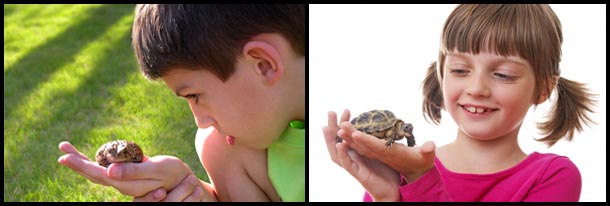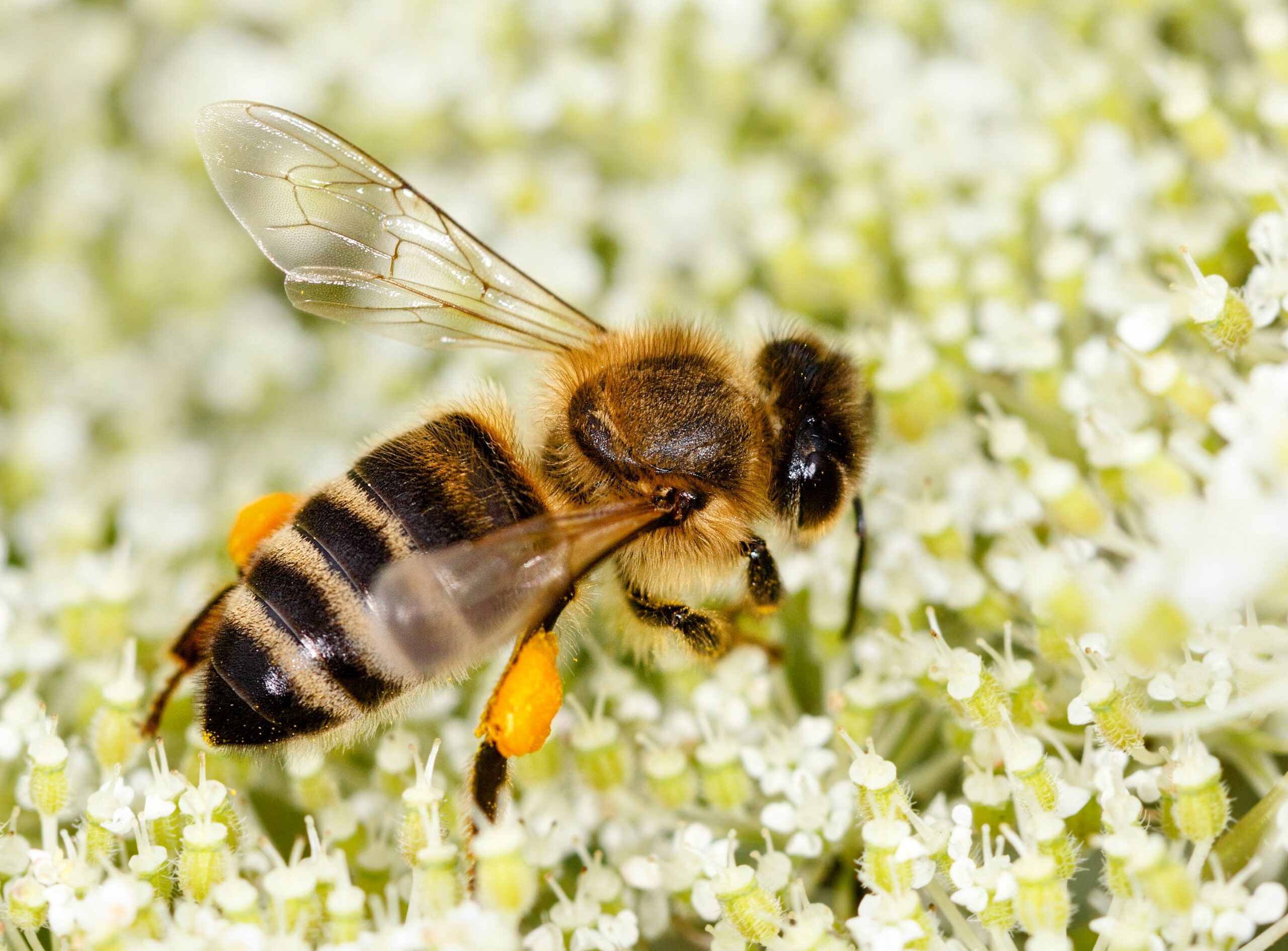Honeybees are the only species of bee that die after stinging, because their stinger gets stuck. This injures them and means they can’t survive a sting.
They can survive stinging other insects, but the thicker flesh of mammals is trickier. Their stingers are barbed meaning they get caught in the flesh and torn out of the bee. This may sound bad already, but it gets worse. Not only is the stinger torn out, so are part of their abdomens and insides! So really, it’s unlikely that a honeybee could survive a sting.
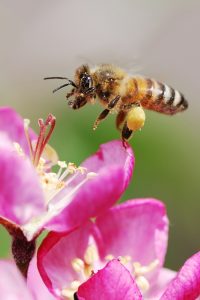
This is especially sad considering the vital role honeybees play in our ecosystem. In case you’re wondering what’s so special about a bee, you’ve come to the right place.
What do bees actually do?
For the sake of simplicity, I’m going to focus specifically on the honeybee.
First and foremost, bees are pollinators. This means they spread pollen between male and female flowers which allows the plants to spread and grow. This is VITAL, and compared to other pollinators such as flies and lizards, bees are the best.
This is because other creatures only visit flowers enough to feed themselves, meaning they don’t pollinate nearly as much as bees who rely on pollen to stock their nests. Bees are responsible for pollinating a whopping 80% of wildflowers in Europe! We owe a lot of natures natural beauty to these little guys.
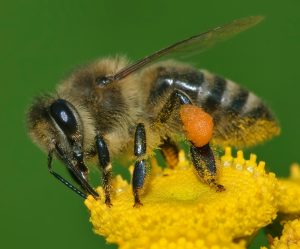
They don’t only pollinate nice looking plants though, oh no. They also pollinate fruit, vegetables and other vital crops for our ecosystem. Frankly, without buzzy bees we’d be doomed!
I’d be remiss if i didn’t mention yet another amazing part of life we have bees to thank for: honey! Whether it’s on toast, in a cup of tea or squirted directly in to your mouth (hey, we’ve all been there) honey is delicious. A perfect ailment for sore throats and a lovely sweet treat, what’s not to like?
I hope any of you bee-doubters or phobics have a new-found appreciation for natures hardest working underdog. Especially since bees are in danger. Pesticides, loss of habitat and several other factors are putting bee populations at risk. So it’s more important than ever to save some bees!
But how do i save bees?
Most people’s instincts when thinking of saving a bee is with honey or sugar water. But this may actually do more harm than good due to the potential for deadly bacterial growth. Providing a constant source of sugar water may also lead to bees abandoning flowers reducing pollination and nutrition rates for the entire hive.
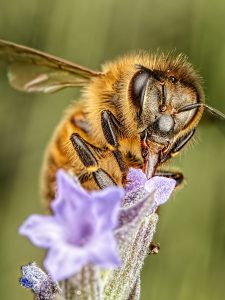
Don’t worry if you didn’t know any of that, neither did I until recently. The other day, while packing a bag, i was stung by a stowaway bee! Fortunately, its stinger remained intact but it seemed fatigued. I carried it outside, and in a panic reached for the honey.
That’s when i thought “is this actually going to help it?” And decided to do a bit of research. Here’s what i found:
If the bee is wet or damp, place them in sunlight to heat them up. Remember that bees don’t live very long and if they die despite your efforts, it may have just been old age!
Upon finding a fatigued bee, try to find a nearby flower high in pollen (like a sunflower!) Have some patience and see if she’ll go for any food. If not, don’t fret, there’s one last option.
As a last resort, present the bee with some sugar water. Use about a teaspoon in a two to one ratio of sugar and water. Don’t overload the bee and don’t force it, if they don’t want to or can’t eat it then there’s nothing to be done. You did your best and hopefully it worked!
I really do hope you take away a good appreciation of bees and a plan of how to save any and all tired or weakened guys you come across. Even if they can’t survive a sting, let’s not kill them out of fear or ignorance!
(thanks to beehive.com for the helpful tips on saving bees!)
Extra Information
Animal-Club provides animal parties or animal handling workshops. You will be able to see, learn and interact with many wonderful animals with the help of our presenters. Our mobile zoo has many friendly animals such as rabbits, tarantulas, geckos, vinegaroons and more, perfect for an animal party. We can also come over to your school for an animal school visit or arrange for an animal workshop with us where the children can learn about looking after animals and animal behaviour, and have fun too.


